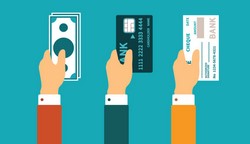A bill to prohibit businesses from refusing to accept cash from customers and requiring them to pay electronically was introduced to the New Jersey Legislature, on Monday, Dec. 3.
The bill, S2785, prohibits a person from selling or offering for sale any goods or services at retail if the person requires the buyer to pay with credit or prohibits the buyer from paying with cash.
The bill applies to any retail transaction conducted in-person, and excludes telephone, mail, or internet-based transactions.
Legislators in Trenton have noted that currencies like BitCoin, a virtual currency, and an increase in number of businesses and kiosks that is no longer accepting cash for the purchase of their products have prompted them to take action with this bill.
If the bill passes, New Jersey would be one of two U.S. states, following Massachusetts, to have such a law in place—and the first in four decades that requires businesses to accept cash.
One of the bill’s primary sponsors Assemblyman Paul Moriarty (D-Gloucester) explained that this bill is aimed at rectifying some of the inequality against those who cannot or do not have the means of being able to set up a bank account or afford to be burdened by credit card debt.
“When you start going cashless, you marginalize people who are older, poorer, [or] younger, who haven’t established credit, or people who don’t want to use credit to buy a pack of gum, which would be me,” Moriarty told NJ Advance Media on Friday, Nov. 30. “For people that want to [use credit], that’s fine, but stores should still accept legal tender, which is the U.S. dollar.”
According to the drafted bill, a civil penalty of up to $2,500 would be imposed for a first violation of the bill’s provisions, and up to $5,000 for a second violation, and any subsequent offense would be unlawful practice under the state.
An unlawful practice is punishable by a monetary penalty of not more than $10,000 for a first offense and not more than $20,000 for any subsequent offense.
Additionally, violations can result in cease and desist orders issued by the Attorney General, the assessment of punitive damages, and the awarding of treble damages and costs to the injured party.
Brian Scharf, a senior business student, agrees with the bill. He said that he believes a ban should be imposed on businesses refusing to accept cash, explaining that it is unfair for any business to refuse a physical monetary tender.
Although sponsors of the bill could not identify specific New Jersey businesses that don’t accept cash, Moriarty said he sees such issues at Newark Liberty International Airport.
“If you go to take a flight, it’s almost impossible to get anything to eat if you don’t have a credit card,” he said. “Everything’s based on iPads, and there are minimal servers.”
Assemblywoman Verlina Reynolds-Jackson (D-Mercer), another one of the bill’s sponsors, said that she was told she couldn’t use cash at a New Jersey store a few years ago but couldn’t remember where. She was shocked.
“If your credit isn’t so good or you don’t have a bank account, you’re not supposed to be able to buy food and groceries?” Reynolds-Jackson questioned. “That’s ridiculous.”
The bill passed the New Jersey State Assembly 71-4 in June, and is still on the Senate floor, waiting to pass and be signed by Governor of New Jersey Phil Murphy to officially become law.
PHOTO TAKEN from Sabre.com



